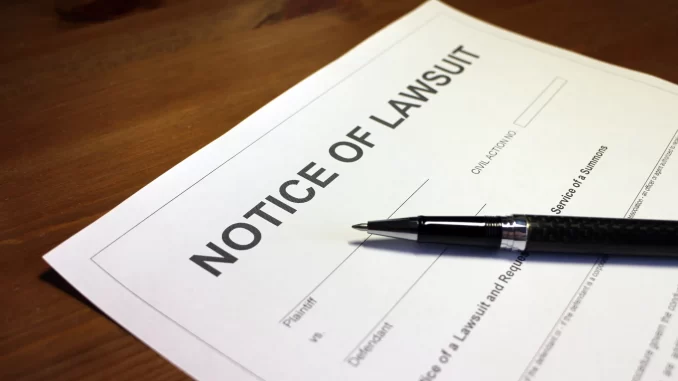
By CaraLynn Caulfield
This article has been updated to include quotes from the Department of Homeland Security.
New York Attorney General Letitia James has joined a coalition of 14 state attorneys general in opposing the federal government’s decision to end Temporary Protected Status (TPS) for immigrants from Honduras, Nepal, and Nicaragua. In an amicus brief filed July 22 in National TPS Alliance v. Noem, the group called the Department of Homeland Security’s recent terminations of TPS “unlawful” and urged the court to halt the policy.
The attorneys general argue that revoking TPS for 56,800 immigrants will have severe humanitarian and economic consequences. The brief argues that ending TPS will also harm state economies, disrupting industries that rely on long-time residents with legal work authorization. The brief also highlights that thousands of U.S. citizens live in mixed-status households with TPS recipients, and ending the program could result in widespread family separation.
“Revoking TPS for 60,000 people will do nothing except cause chaos throughout New York and other states and stoke fear in immigrant communities,” James said in a statement. “By eliminating their legal status, this administration is putting thousands of New Yorkers in danger and breaking up families across the country.”
TPS provides legal protection to immigrants from countries deemed unsafe due to conflict or disaster. According to the brief, more than 51,000 Hondurans and 2,900 Nicaraguans—granted TPS after Hurricane Mitch in 1999—face the loss of legal status, along with about 7,200 Nepali nationals, many of whom came to the U.S. following the 2015 earthquakes.
On Long Island, many residents could be directly affected by the policy shift. According to the Migration Policy Institute, approximately 6,000 Hondurans live in Suffolk County, while another 11,051 reside in Nassau County, based on data from Statista. Newsday, citing U.S. Census Bureau data, reported that roughly 1,000 Nicaraguans live on Long Island. Although no precise figure is available for Long Island’s Nepali community, the Pew Research Center estimates about 1,000 Nepalese live in New York State.
The Trump administration argues that conditions in all three nations have improved significantly, rendering continued TPS protections unnecessary. “Temporary Protected Status was designed to be just that — temporary,” said Secretary of Homeland Security Kristi Noem earlier this month, announcing the terminations. “It is clear that the Government of Honduras has taken all of the necessary steps to overcome the impacts of Hurricane Mitch, almost 27 years ago. Honduran citizens can safely return home, and DHS is here to help facilitate their voluntary return.”
In the case of Honduras, TPS was granted in 1999 following Hurricane Mitch. According to DHS, the Honduran government has made “tremendous strides” in recovery and now offers job training, economic support, and voluntary return packages including free airfare, a $1,000 resettlement bonus, and continued eligibility for legal immigration under the CBP One app.
Similarly, the administration determined that Nicaragua no longer meets TPS requirements. According to the Federal Register notice, Nicaragua has rebuilt critical infrastructure damaged by Hurricane Mitch, including roads, schools, and flood-prevention bridges. The country has also increased foreign reserves and improved macroeconomic stability, now promoting itself as a destination for ecotourism, agriculture, and renewable energy investment.
The situation in Nepal was similarly evaluated. Following the devastating 2015 earthquakes, Nepal was granted TPS due to widespread destruction. However, the termination notice states that more than 88% of homes have been rebuilt, and over 81% of health facilities have been restored. Economic indicators show GDP growth and a decline in inflation, while the Internal Displacement Monitoring Centre found that 90% of displaced people had obtained permanent housing.
Despite these metrics, the attorneys general contend that DHS failed to fully consider the ongoing vulnerability of many TPS holders, who have built lives in the U.S. over decades, and they are asking the court to grant preliminary relief to prevent the terminations from taking effect ahead of the September 8 deadline.
The legal challenge aims to preserve TPS for now, and potentially set new limits on executive authority to revoke such protections without further congressional input or judicial review.
Long Island Life & Politics reached out to the Department of Homeland Security and U.S. Immigration and Customs Enforcement for comment but had not received a response as of press time.

